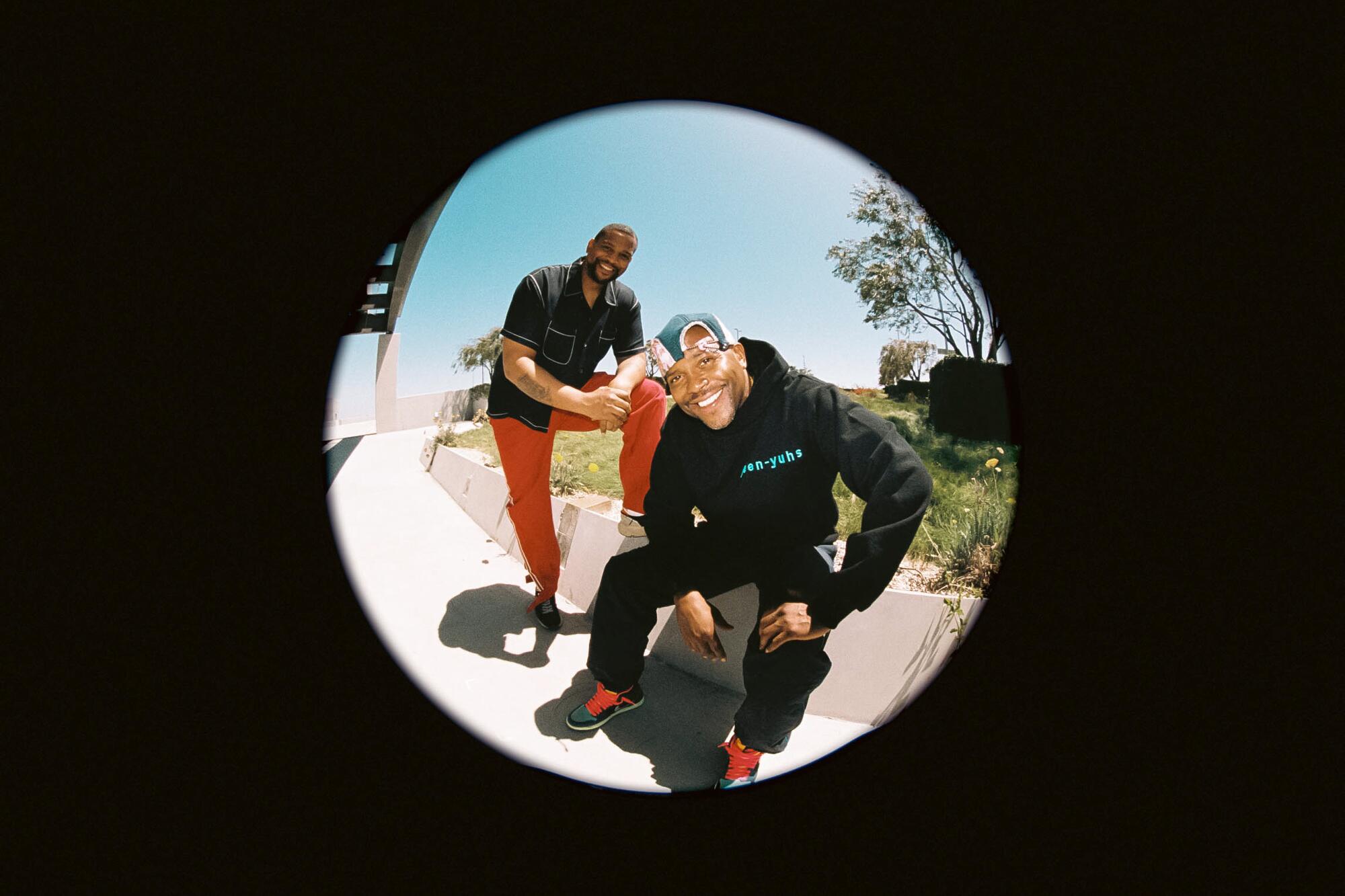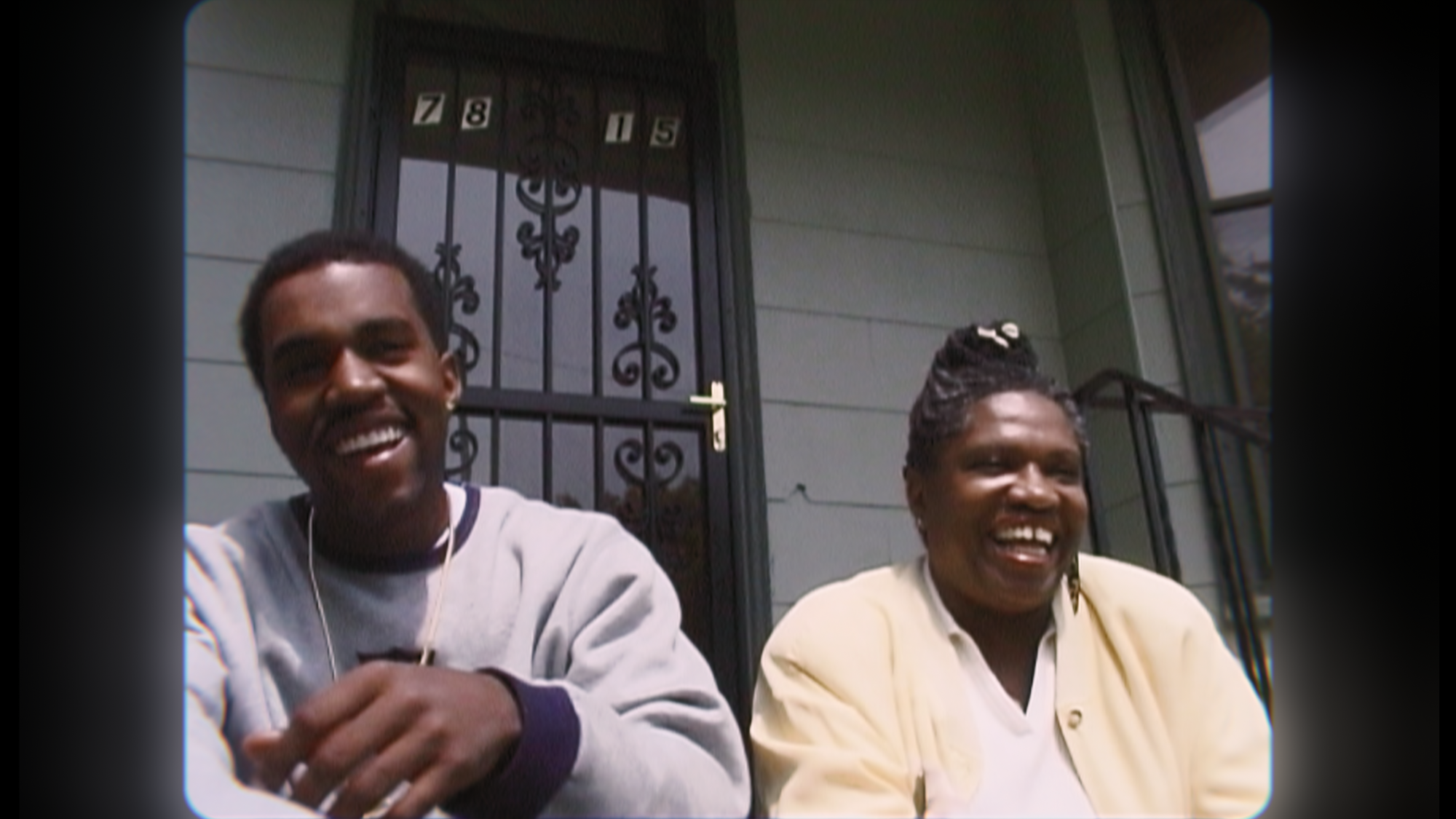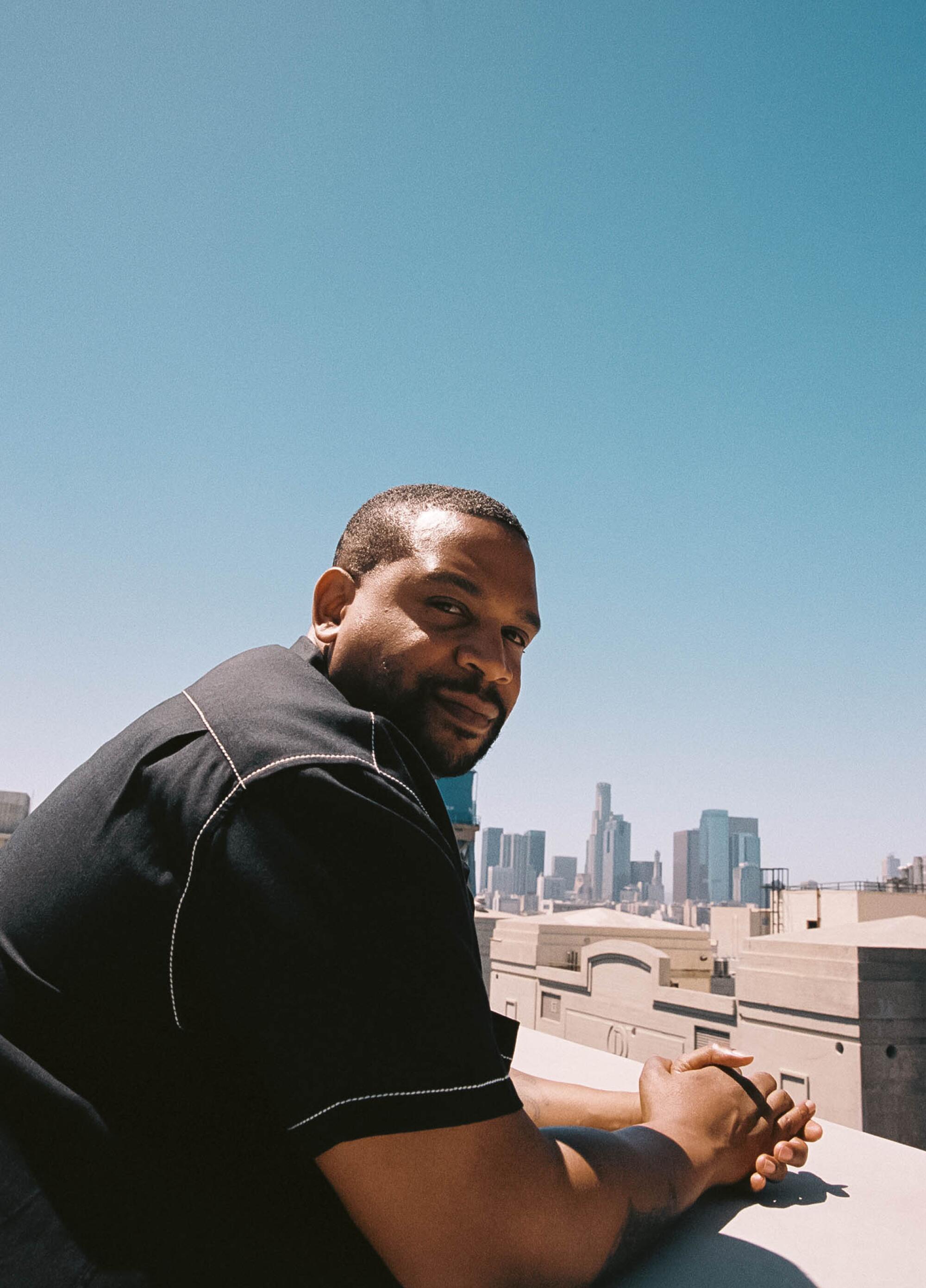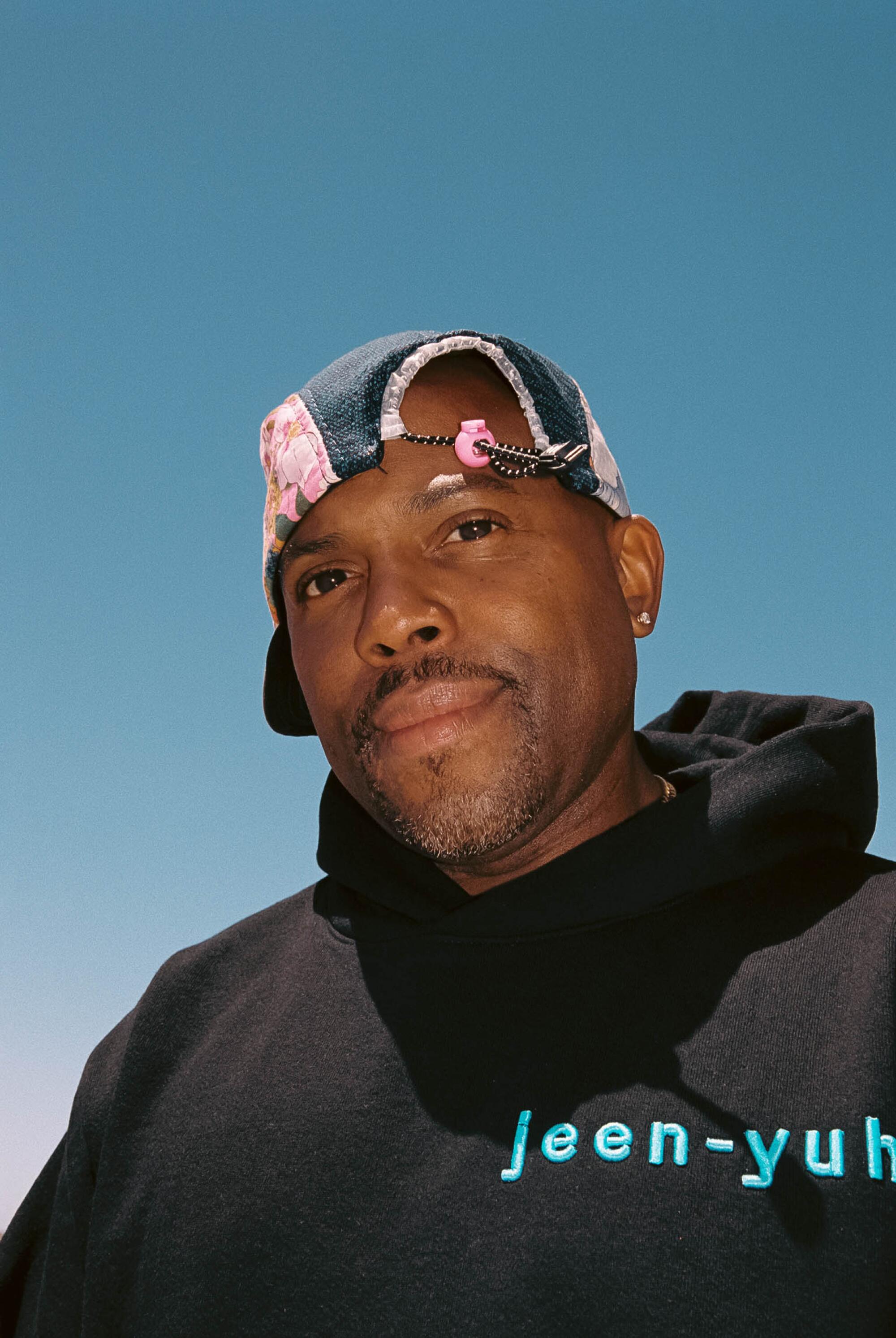
When Chicago native Coodie Simmons turned his camcorder on in 1998 to document young hip-hop producer Kanye West’s push to become a rapper, he got an up-close view of a friend’s ascendancy to all-time greatness. He also met his eventual creative partner on that journey: Chike Ozah, an aspiring director working in graphics at MTV. The ambitious collaborators — who now go by Coodie & Chike — established music video bonafides with West’s breakout “Through the Wire” video and documentary cred with “Benji,” their affecting “30 for 30” installment about the life and death of a high school basketball player.
Now, the pair and a team of editors have corralled two decades and more than 500 hours of footage into the three-part Netflix docuseries “Jeen-yuhs: A Kanye West Trilogy.” An intimate lens on Kanye’s hyperfocused path to stardom, from campaigning for attention in recording studios and label offices to Grammys glory and icon status, it’s told from the viewpoint of an understanding friend who doesn’t ignore his more erratic behavior (although the Kardashians are absent here) but would rather celebrate him than judge him.
In a joint conversation with Chike recently over Zoom, Coodie says he’s already seen their film inspire others to hit the on-switch and chronicle their own joys and struggles. “I feel like documenting life is important,” Coodie says. “We used to do it with literature, then pictures, and now we have video, where you can really relive a moment. It’s something powerful.”

If you’d made “Jeen-yuhs” five, 10, 15 years ago, what would it have been?
Chike: Different movie. Everything we did before was in training for this moment.
Coodie: It’s about storytelling, a lot of experience and practice. Reading “Story” by Robert McKee helped a lot. And we learned [making the “30 for 30” documentary] “Benji” how to get rid of our darlings.
Chike: Anything that wasn’t moving the story forward at any given second, to our destination, we were OK with cutting.
Kanye’s ego is as legendary as his talent. What has working on this documentary told you about that kind of self-image?
Chike: I think the death of the ego is important because it’s false to think ego is responsible for confidence. We have no egos in our relationship. We criticize each other in a positive way. We let God drive our car. Even though, literally, I can’t drive. I don’t have a license. [Laughs]
Coodie: Every time I even think to take any credit, have some ego, God just puts me right in my place.
Kanye could see his future clearly. What couldn’t he anticipate?
Chike: I can’t step inside his skin, but from the outside looking in, I just wish that whatever darkness he ever felt on his journey, I wish that could be removed. None of us ever see that part coming.
Coodie: His mom making the transition. I know he didn’t see that. That had to hurt.
Kanye’s mother Donda, who died in 2007, is such a powerful, affirming presence in your documentary.
Coodie: My first time meeting her, I felt like I knew her. She kind of adopted all of us, everybody that was around Kanye, giving us wisdom and knowledge that she was puttin’ on Kanye. Then we just really became good friends. When Kanye got famous, she would call, “Coodie, come have Christmas with us in Oklahoma.” I feel her spirit was with us this whole time.


Coodie, in your narration there’s a line about when you realized, early on, that your camera could help Kanye’s career. Over 20 years later, what would you say your camera is doing for him now?
Coodie: I always felt like Kanye was so misunderstood, even though I thought I didn’t know him anymore when we were separated for that six years, and I’m only seeing [him through the] media. But then we reconnected, and going to China with him, I knew that this was the same guy I came to love back in Chicago and wanted to put a camera on. I told Kanye, too, that the movie wasn’t about him and me, but for the dreamers. I knew people were going to have another respect for Kanye after the movie. It was definitely going to wake people up and not look at Kanye as this superhero, this fictional character, but like a real person.
It helps that Coodie is the narrator but also a character with his own journey. Was that an obvious decision?
Chike: What separates one story from another is the entry point. There’s only one Coodie, who had this one experience with Kanye, and happened to have filmed it, so I felt like that was the best thing to serve as the anchor. Kanye, he’s a megastar. He’s at a space that might not be relatable. You’re not gonna feel like, “I’m gonna be Kanye tomorrow.” But Coodie, who’s excelled in his career, too, is the one more people can relate to. He becomes the voice of every kid, especially in the communities we came up in.
What was Kanye’s reaction to seeing the documentary for the first time?
Coodie: I had told him, “Kanye, the way you have to watch the films is with everybody who you came up with who loved you.” We made it happen for the premiere. He came in defensive, for whatever reason. His hood was on. But they sat him right next to my sister and my daughter, and as the movie was going, he was laughin’ and turnin’ around and lookin’ at people, and his hood was steadily falling off. At the end, he gave us all the love, and that was special. He thanked me for the first time, I think, ever. Then, in the elevator, he was like, “Man, I can’t believe Drake thought he could narrate this movie!”
More to Read
From the Oscars to the Emmys.
Get the Envelope newsletter for exclusive awards season coverage, behind-the-scenes stories from the Envelope podcast and columnist Glenn Whipp’s must-read analysis.
You may occasionally receive promotional content from the Los Angeles Times.










